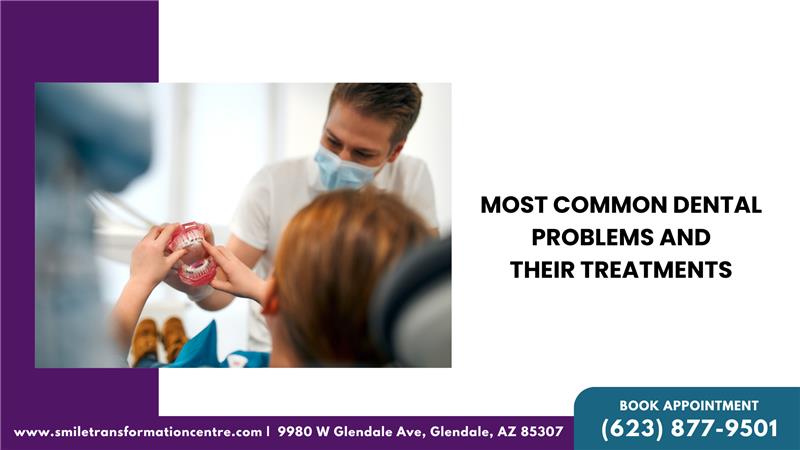Dental problems affect millions of people worldwide and can range from minor issues like tooth sensitivity to severe conditions like oral cancer. According to the World Health Organization (WHO), approximately 3.5 billion people worldwide suffer from oral disease. Tooth decay, also known as dental caries, remains the most common health condition in the world, affecting around 2.3 billion people with permanent teeth and 530 million children with primary teeth. Understanding these problems and their treatments is essential for maintaining a healthy smile and overall health. Poor oral health can lead to pain, discomfort, and significant health issues such as heart disease and diabetes. In this blog, we will explore the most common dental problems and their treatments, helping to stay informed and proactive about dental health.
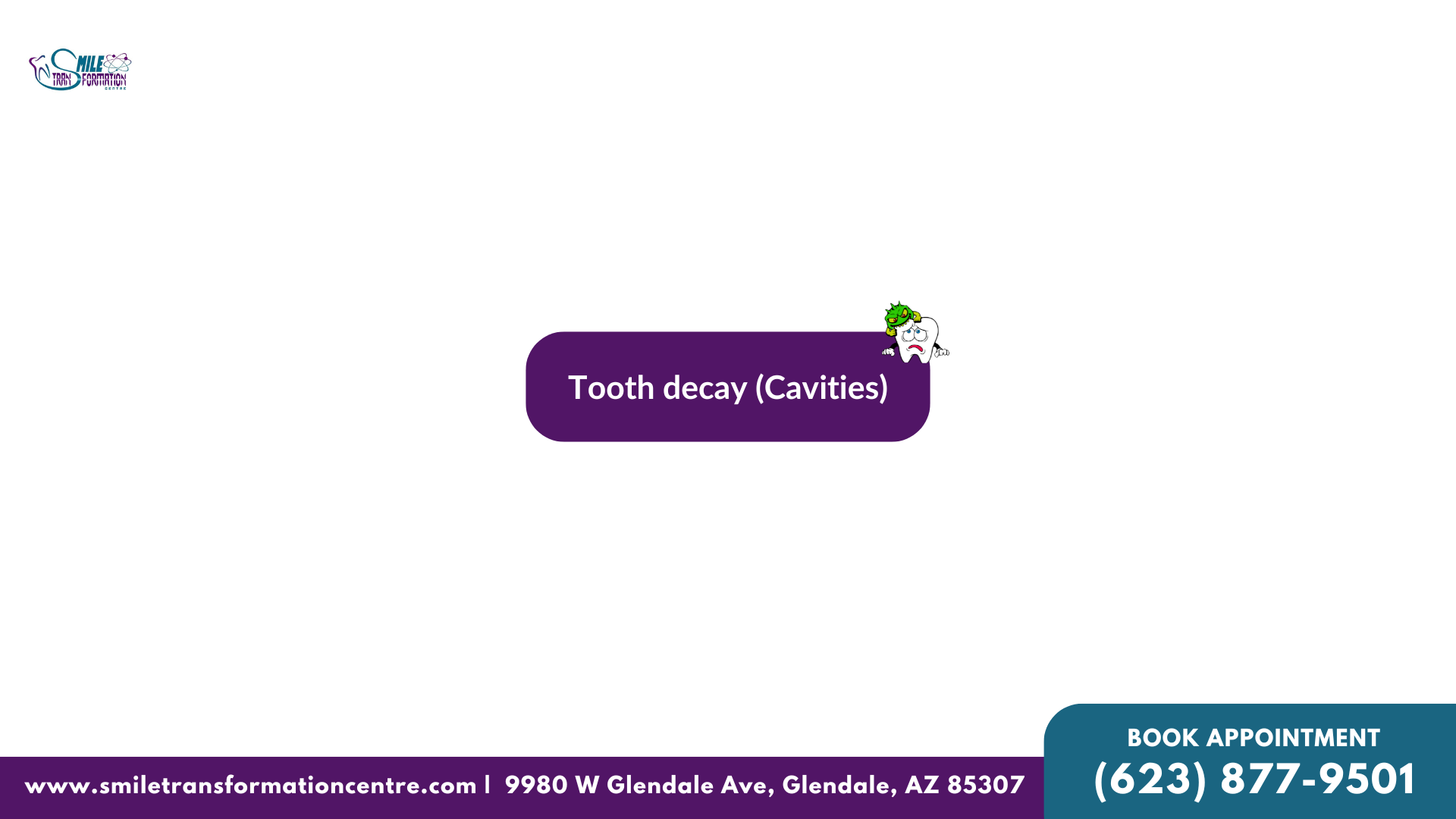
Tooth Decay (Cavities)
Tooth decay, or cavities, is one of the most common dental problems. Bacteria in the mouth produce acids that erode tooth enamel. If left untreated, cavities can cause pain, infection, and even tooth loss. Treatment typically involves removing the decayed portion of the tooth and filling it with materials like amalgam or composite resins. For aesthetic solutions, consider white fillings in Glendale.
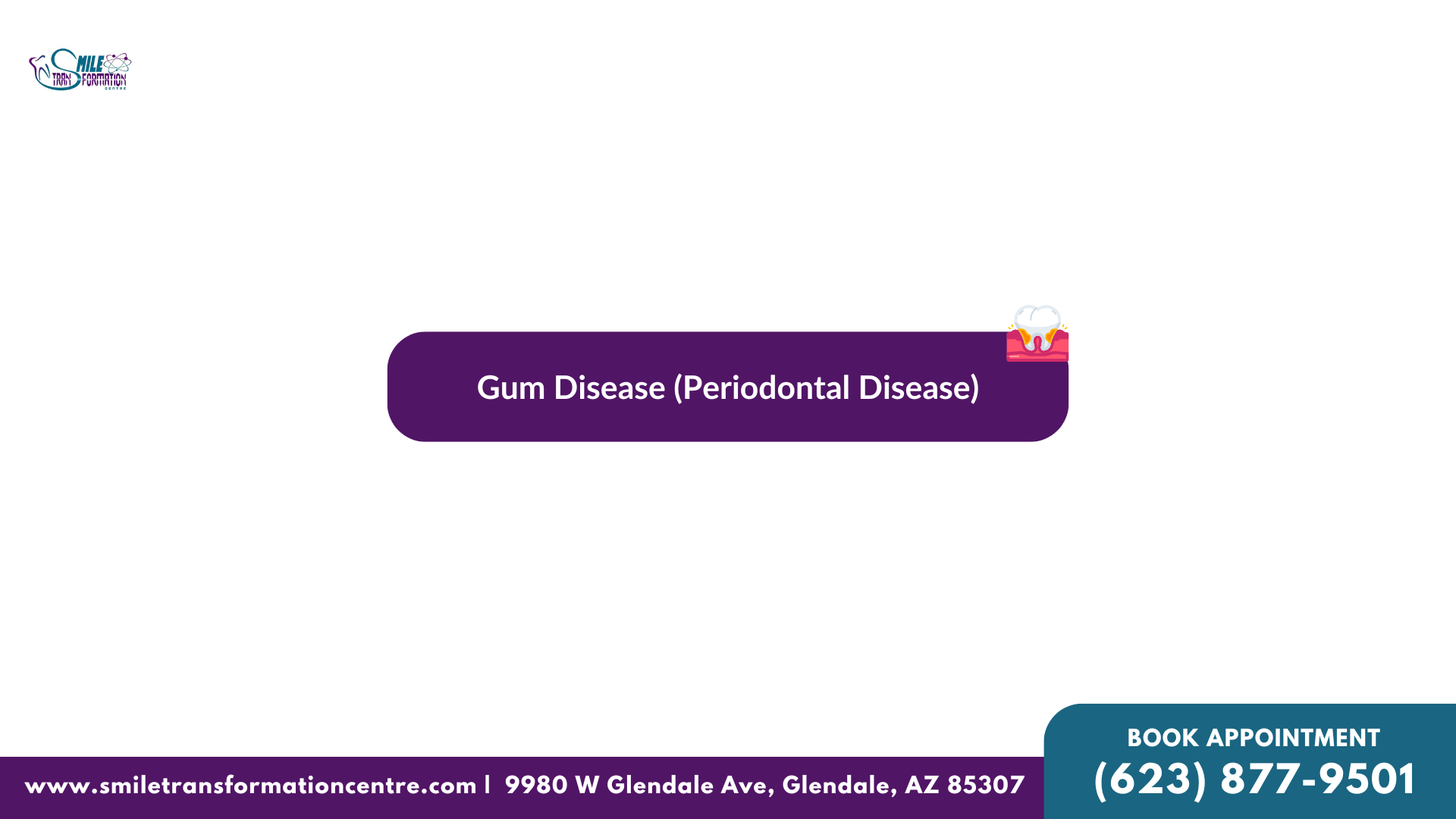
Gum Disease (Periodontal disease)
Gum disease is a severe infection of the gums that can damage the soft tissue and destroy the bone supporting your teeth. Early-stage gum disease, known as gingivitis, can be reversed with good oral hygiene and professional cleanings. Advanced stages, or periodontitis, may require more intensive treatments such as scaling and root planing or surgery.
Tooth Sensitivity
Tooth sensitivity is a common problem that involves discomfort or pain when teeth are exposed to hot, cold, sweet, or acidic foods and drinks. Treatment can include using desensitizing toothpaste, fluoride treatments, or dental procedures to cover exposed roots.
Tooth Erosion
Tooth erosion happens when acids wear away the tooth enamel. It can result from consuming acidic foods and beverages, acid reflux, or certain medical conditions. Treatment focuses on restoring the lost enamel with bonding, veneers, or crowns. If you’re experiencing significant enamel loss, dental crowns might be the right solution.
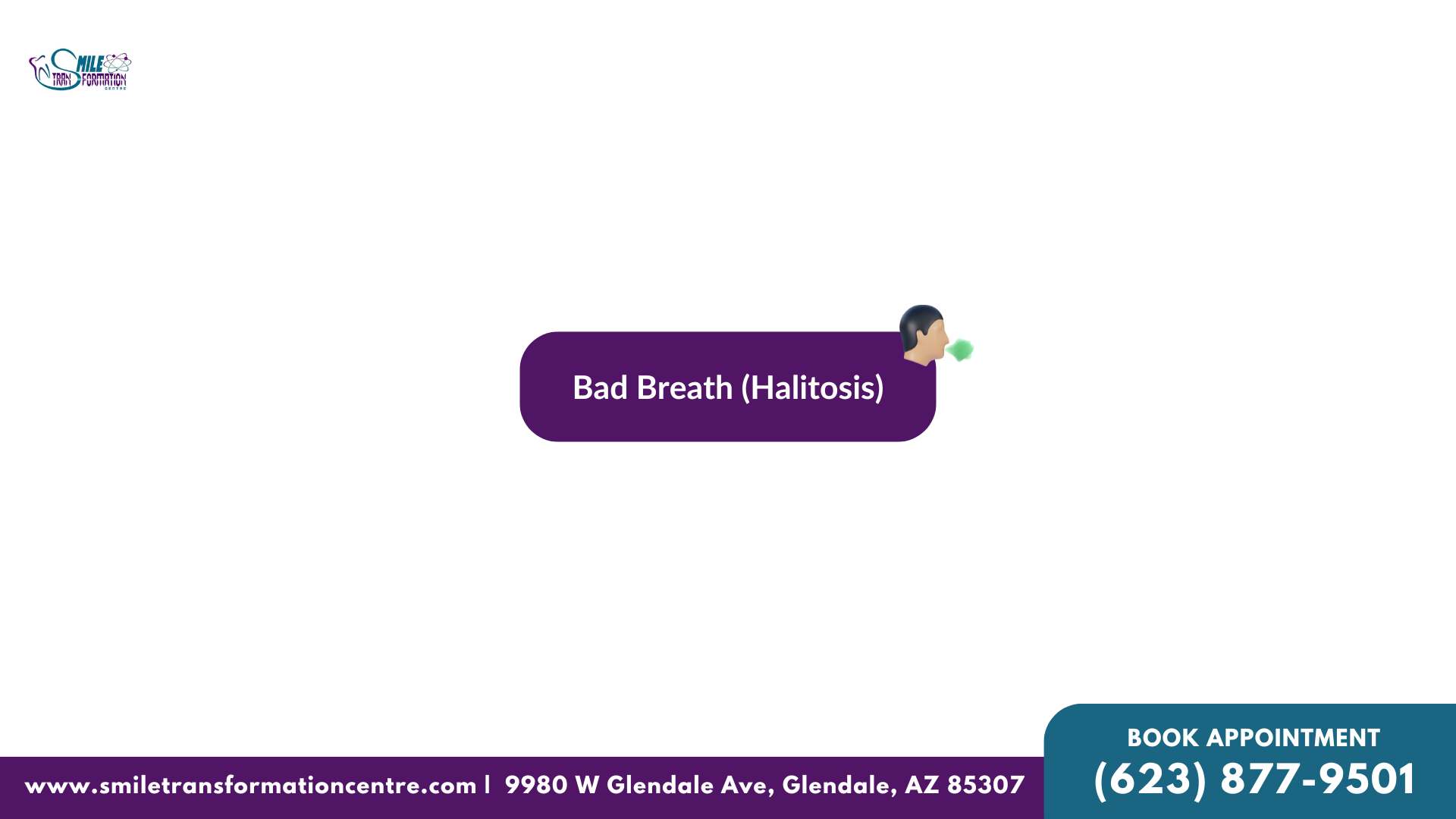
Bad Breath (Halitosis)
Bad breath can be caused by poor oral hygiene, certain foods, or underlying dental issues. Maintaining good oral hygiene, staying hydrated, and regular dental check-ups are vital for preventing and treating halitosis.
Toothaches and Dental Emergencies
Toothaches can result from various dental problems, including cavities, abscesses, and injuries. Immediate treatment is essential to address the cause of the pain and prevent further complications. In case of severe pain or injury, consider seeking emergency care, including procedures like root canals.
Crooked or Misaligned Teeth (Malocclusion)
Malocclusion refers to misaligned teeth or an incorrect bite. It can affect chewing, speaking, and overall oral health. Treatment options include braces, clear aligners, or other orthodontic appliances.
Oral Cancer
Oral cancer is a dangerous disorder that can affect any area of the mouth. Regular dental examinations are important for early detection. Surgery, radiation, or chemotherapy are all options for treatment.
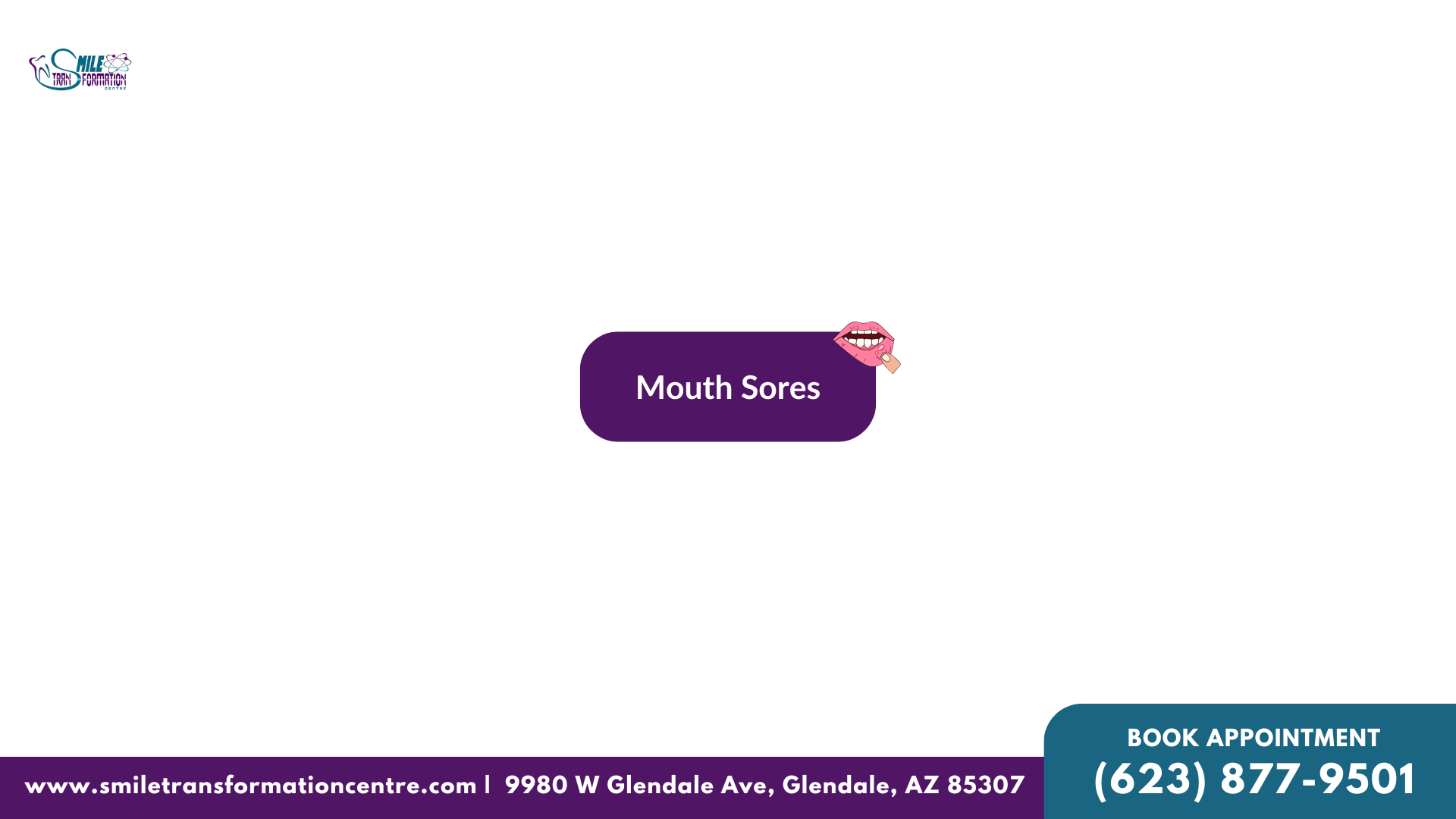
Mouth Sores
Mouth sores, such as canker or cold sores, can be unpleasant and irritating. Most mouth sores heal on their own; however, persistent or severe sores may require medical care.
Tooth Grinding (Bruxism)
Bruxism is the grinding or clenching of teeth, often during sleep. It can lead to tooth damage, jaw pain, and other issues. Treatment options include wearing a nightguard and stress management techniques.
Dry Mouth (Xerostomia)
Dry mouth happens when there isn’t enough saliva to keep the mouth wet. It may be caused by drugs, medical issues, or lifestyle choices. Treatment involves addressing the underlying cause and using saliva substitutes or medications to stimulate saliva production.
Tooth Decay (Dental Caries)
Dental caries, or tooth decay, is a result of prolonged exposure to sugary and starchy foods, leading to acid production by bacteria. Prevention includes good oral hygiene, fluoride treatments, and regular dental visits.
Impacted Teeth
Impacted teeth are teeth that have not erupted properly and are stuck in the gum or jawbone. They can cause pain, swelling, and infection. Surgical removal is often necessary, especially for impacted wisdom teeth. After such procedures, it’s important to follow post-operative care, including the best food to eat after wisdom teeth removal like smoothies and milkshakes (avoid using a straw), Applesauce, mashed potatoes, broth-based soups, yogurt (without large fruit chunks) and scrambled eggs.
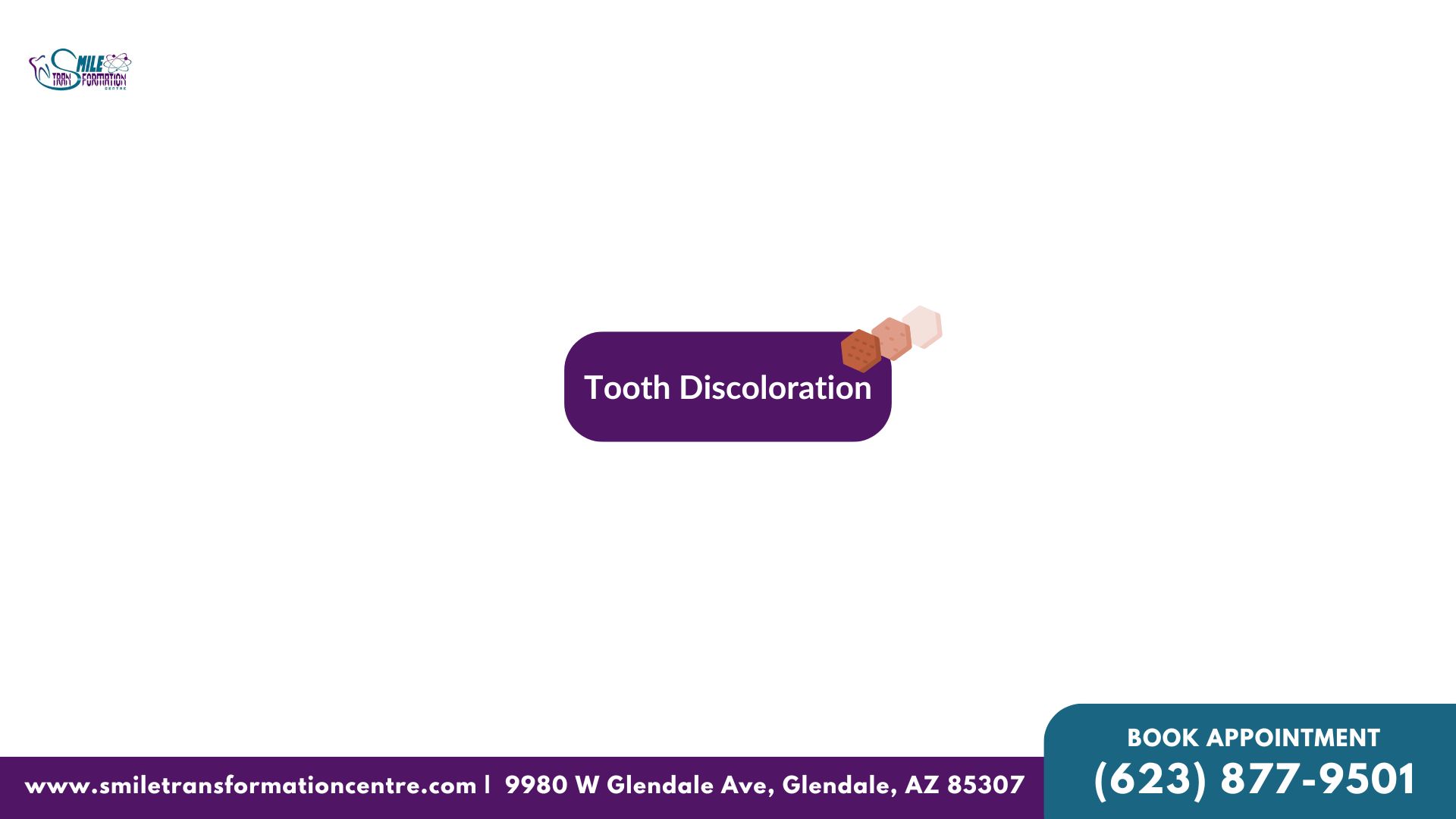
Tooth Discoloration
Tooth discoloration can result from various factors, including food, drink, smoking, and aging. Whitening treatments, veneers, or bonding can help improve the appearance of discolored teeth. For effective aesthetic treatments, consider dental bonding.
Cracked or Chipped Teeth
Cracked or chipped teeth can occur due to injury, grinding, or biting hard objects. Treatment options include bonding, crowns, or veneers, depending on the severity of the damage.
Maintaining good oral health requires understanding common dental problems and their treatments. Regular dental check-ups, proper oral hygiene, and timely intervention are key to preventing and managing these issues. If you’re in Glendale and need professional dental care, the Smile Transformation Center is here to help. From white fillings to dental crowns, and root canals, we provide comprehensive dental services to ensure your smile stays healthy and beautiful.
At Smile Transformation Center in Glendale, we are dedicated to transforming your smile with the highest quality dental care. Our expert team is here to help. Experience the best in dental care and achieve the smile you deserve. Contact us today to schedule your appointment and begin your journey to a healthier, more beautiful smile.

